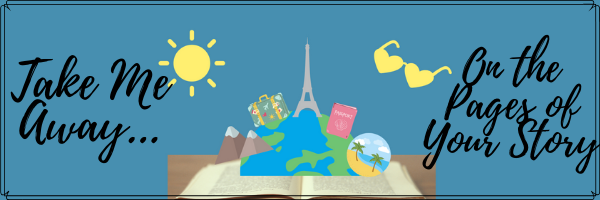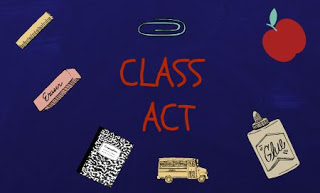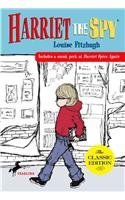As y’all know, I’m a Library Science student at University of North Texas. This semester I have the pleasure of taking an AWESOME class called Literature for Youth! One of the things we have to do is read some books from a list my Prof has provided us and then make up a blog and post reviews over what we’ve read. CLEARLY this is right up my alley! So, instead of making a completely different blog, every Saturday I’m going to start posting this new feature!
MODULE 2:
Classic Children’s and Young Adult Literature
Hardcover, 300 pages
Released: 1964
Published by: Harper & Row
Source: Library
Book Summary: Harriet is a spy. She writes things down in her ever present notebook, about all her friends. Those things could be good or even bad. But then one day, her notebook is found by her friends and they see everything she’s had to say about them. How does she get them to not stay angry with her?
Reference: Fitzhugh, Louise. Harriet the Spy. Harper & Row, 1964. Print. Retrieved September 5, 2015.
MY IMPRESSIONS:
When I saw this book on the list, I knew it would be the perfect opportunity to read something I should have read ages ago. I was a kid when my mother had told me about it and I never pulled it down to read it. In reality, I think that’s what constitutes a classic. If its a book that’s passed down for generations and my mom told me about it and she wanted me to read it and then tell my kids about it.
But overall, it didn’t really blow me away like it has done many others. I thought Harriet was mean and that she got away with way too much. There were many things I thought the parents should’ve handled differently, but I’ve learned from my textbook that at the time this was published, kids who disagreed with what their parents said were not normal.
As for the characters, I really thought Harriet was me as a child. I was one who carried around composition notebooks all the time. If you know me well enough, you know that I still do that now! But I used to use it as journals and now as a book blogger I use it for keeping notes on the stories I read. I can only imagine how it felt when hers was snatched. But at the same time, she should learn to say things in a different way. Harriet was also good for giggles. So many times I laughed at what she said, but only because it wasn’t about me. I think Harriet should’ve been handled in a different way instead of her parents always sending her away when she misbehaved.
Harriet the Spy is a classic that I will remember reading for a long time because there’s so much I would’ve done to change it. Hopefully it will show people all that has changes from back then.
Overall, I give this
Professionals are saying…
The Plot: Harriet, eleven, writes down all she observes about her family, friends, and neighbors. When her private, and honest, notebook falls into the hands of her classmates, she has to face the unpleasant consequences.
The Good: Oh, Harriet!
I read Harriet as a child, discovering her as a child. My memories of that — other than the cover image of a red sweatshirt trumping the blue one described in the book — are focused on the “spying” element of Harriet’s life. The outfit, the route, her sneaking in and around homes, peaking in windows, and, of course, the honest, unvarnished, unfiltered observations she wrote down.
There were things that didn’t register me, as a 1970s child of the suburbs, reading about a 1960s child in New York City. Because I lived in a house, I didn’t realize the significance of Harriet living in a house. I wasn’t quite sure who or what Ole Golly’s role was, but I accepted her being there and that her loss was significant. Harriet’s spy clothes didn’t seem out of the ordinary, and my focus was less on her dressing like a boy and more on that her clothes were old. Egg cremes, I assumed, were made with raw egg and thought that was gross.
As I reread, now, as an adult, what struck me first and foremost was Harriet herself. Her independence and her strong sense of self. I also noted the parts were Harriet, despite calling herself a spy who wants to know everything, didn’t realize what was going on around her. She had no clue that Ole Golly was getting engaged; she didn’t realize when her schoolmates were talking about her or intending for messages to be intercepted. This underscored, for me, just how much a child Harriet was; how typical, how ordinary. She is not a superhero or above average: she is just like the child who reads about her.
Part of Harriet being like her reader, wherever that reader lives, or whatever the family background, are Harriet’s emotions. With her notebook, with the reader, she is honest about what she thinks and feels; honest about what she thinks she sees. There is an attraction to that honesty, whether the reader is that honest or wishes they were. And then she is exposed: the world sees what she really thinks. Or, at least, what she was thinking at that moment in time. Her privacy is violated.
And then this is when Harriet becomes her most real. Because, before, you couldn’t really accuse her of being “mean” because it was just her and her notebook. Now, though, that changes. After her classmates get angry and team up against her, Harriet’s words and actions shift. I confess, I didn’t reread and annotate whether or not her observations of others changed, but her actions certainly did, beginning with tripping one classmate and then writing a list of things she knows will hurt them. And actually doing those things.
One thing I like about this — that Harriet having the outlet of writing out her feelings meant she didn’t express them, so actually helped her. I loved how the adults in her world didn’t truly interfere in her life or the lives of their children: the level to which they allowed them to work things out, to the extent they are even aware of what is happening. No helicopter parents here. The parents stepped in when they needed to: the letter from Ole Golly, helping Harriet to channel her need to write to a more productive outlet.
The easy answer for Harriet, for a book, is to have Harriet realize that she is being mean — mean because she’s been hurt. Mean because she doesn’t realize the cycle she contributed to, and that by doing these things she is just making it worse. To have her realize that she’s being mean when she starts tripping people, and that even if she didn’t intend to be mean when she writing in her notebook that people saw it as mean. To have Harriet learn empathy. To have her feel bad and resolve to be a better person.
But Harriet the Spy isn’t easy. Instead, it gives a more complex answer. It allows Harriet to feel and believe exactly how she feels and believes, without making her feel guilty about it. Without making the reader feel guilty. There is no shaming.
Instead, there is Ole Golly’s words of wisdom: Apologize. A lie that makes someone feel better isn’t bad. Writing is to put love into the world, not to hurt others. This gives Harriet both a structure to operate under, but also introduces the child to the world of grownups, a world that isn’t black and white, but is full of shades of gray. It is about the delicate balance between being true to oneself, but not hurting others. It’s a balance that some people never learn, never caring that their “honesty” hurts others; thinking their own feelings always trump others.
In the essays in the Fiftieth Anniversary edition, many focused on Harriet as writer. And that is there. And, of course, writers are going to concentrate on that part of Harriet the Spy. But also there is this fundamental lesson about growing up: sometimes, you have to lie. Just don’t lie to yourself. And you have to make a decision on how to use your words: to hurt? Or to put love into the world? Those words can be the newspaper or notebook that Harriet writes, but it is also all human interaction.
Burns, E. (2014, April 1). Review: Harriet the Spy. Retrieved September 5, 2015.
Retrieved from: School Library Journal (2014).Harriet the Spy Review [Harriet the Spy, by Louise Fitzhugh]. Burns, E. Retrieved from:http://blogs.slj.com/teacozy/2014/04/01/review-harriet-the-spy/ on September 5, 2015.
Library Uses…
I would use Harriet the Spy as a writing exercise in a school library setting. I would tell them to watch their surrounding for a few days and write about their surroundings. No thinking, just writing. I would also tell them to not write about people, just the outside world to avoid things like hurting people’s feelings as Harriet did.
Book Image from: https://www.goodreads.com/book/show/232576.Harriet_the_Spy




That is so awesome! So basically your assignment is to do what you have already been doing? 🙂
I am going to take a Children's Lit and YA Lit this year and I am super excited for it as well!
YES! And it's so amazing! I get to read and review books as an assignment! And the best part is, they're also young adult and children's books. Which school do you attend? And are you going for a Youth Services Librarian too? I'm definitely looking for more people in the same program to talk to! I'd love if we could chat!
Thanks for stopping by!
Nikki H.